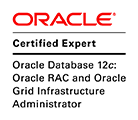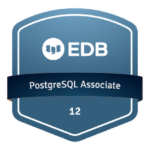This article explains the steps to convert an existing Oracle database 19c (19.9) RAC 2 nodes to RAC one Node on Oracle Linux 8u2.
Steps:
- Check Configuration of the database RAC
- Remove instance and create a service
- Convert the Database type from RAC to RACONENODE:
- Check the new database type
What we have:
Oracle RAC Database 19.9, 2 nodes on Oracle Linux 8u2.
Steps:
Step 1: Check Configuration of the database RAC
$ srvctl config database -d orcl
Database unique name: orcl
Database name: orcl
Oracle home: /u01/app/oracle/product/19c/dbhome_1
Oracle user: oracle
Spfile: +DATA/ORCL/PARAMETERFILE/spfile.272.1077272417
Password file: +DATA/ORCL/PASSWORD/pwdorcl.256.1077270987
Domain:
Start options: open
Stop options: immediate
Database role: PRIMARY
Management policy: AUTOMATIC
Server pools:
Disk Groups: FRA,DATA
Mount point paths:
Services:
Type: RAC
Start concurrency:
Stop concurrency:
OSDBA group: dba
OSOPER group: oper
Database instances: orcl1,orcl2
Configured nodes: host01,host02
CSS critical: no
CPU count: 0
Memory target: 0
Maximum memory: 0
Default network number for database services:
Database is administrator managed
Step 2: Remove instance and create a service
srvctl remove instance -db orcl -instance orcl2
srvctl add service -db orcl -service orcl_srv -preferred orcl1
Note: With Database is administrator managed, you should use the option “preferred“
Step 3: Convert the Database type from RAC to RACONENODE:
$ srvctl convert database -db orcl -dbtype raconenode -instance orcl1
Step 4: Check the new database type
$ srvctl config database -d orcl
Database unique name: orcl
Database name: orcl
Oracle home: /u01/app/oracle/product/19c/dbhome_1
Oracle user: oracle
Spfile: +DATA/ORCL/PARAMETERFILE/spfile.272.1077272417
Password file: +DATA/ORCL/PASSWORD/pwdorcl.256.1077270987
Domain:
Start options: open
Stop options: immediate
Database role: PRIMARY
Management policy: AUTOMATIC
Server pools:
Disk Groups: FRA,DATA
Mount point paths:
Services: orcl_srv
Type: RACOneNode
Online relocation timeout: 30
Instance name prefix: orcl1
Candidate servers: host01
OSDBA group: dba
OSOPER group: oper
Database instances: orcl1_1
CSS critical: no
CPU count: 0
Memory target: 0
Maximum memory: 0
Default network number for database services:
Database is administrator managed
Enjoy 😉













